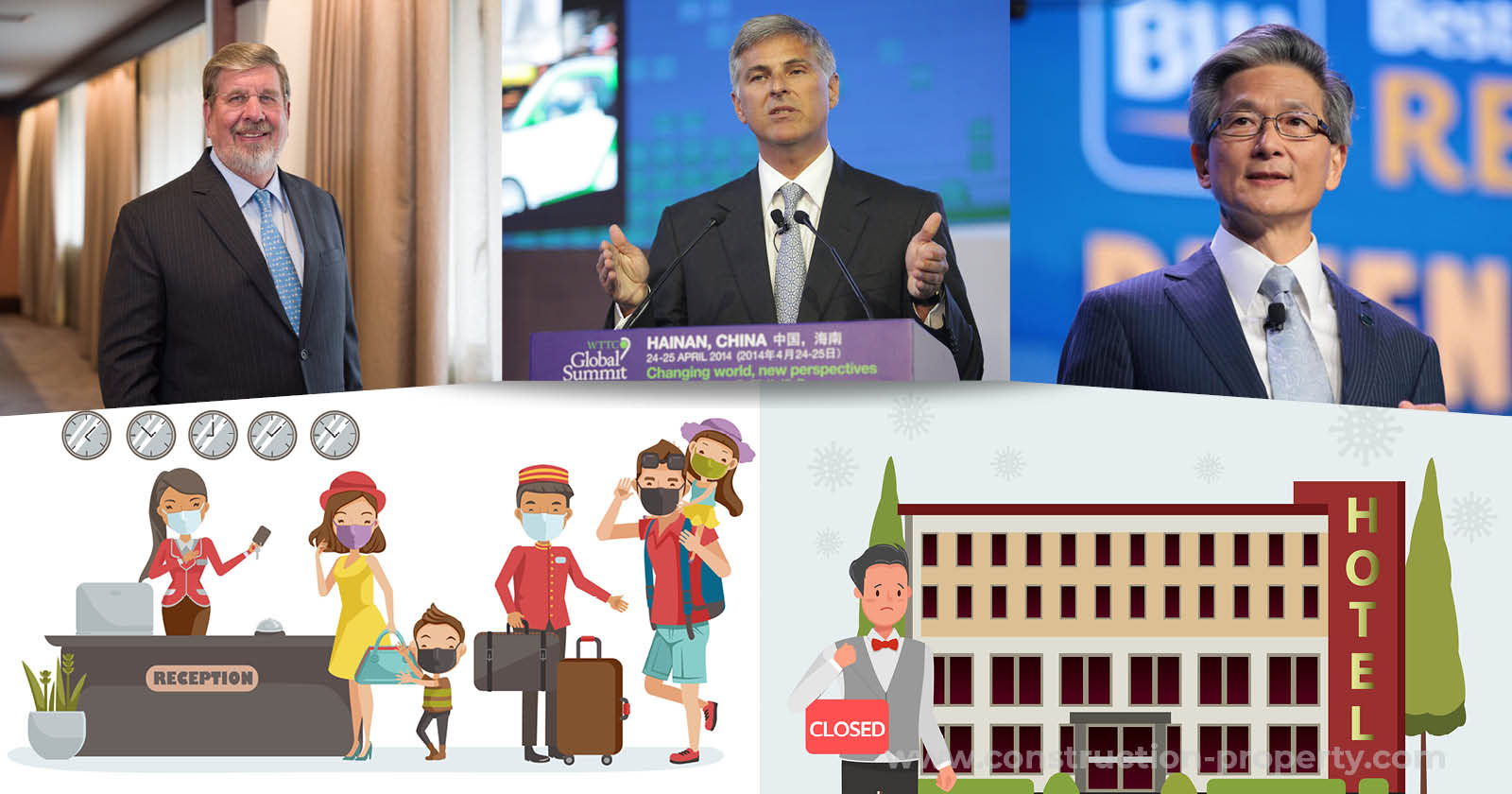Hotel CEOs’ recovery strategies for the hospitality industry
The hospitality industry is undoubtedly one of the hardest-hit sectors from the unprecedented COVID-19 pandemic. For the first four months of 2020, foreign tourists to Cambodia dropped by more than 70%. Nearly 3,000 tourism-related businesses have been closed; over 1,000 hotels, guesthouses and restaurants have been shut down, resulting in thousands of people losing their jobs, according to Koh Sontepheap. This has result in an estimated loss in revenue loss approximately US$ 3 billion a year for the sector.
The impact is expected to be even more severe after the Cambodian government recently required all foreigners entering Cambodia to deposit US$3,000 for lab testing, medical treatment, and accommodation. Though with the intention to prevent a second wave, this new regulation will have a significant effect on the tourism and hospitality sectors, as this will clearly discourage tourists from visiting Cambodia.
Amid these tremendous impacts, what should hotels and restaurant operators do to survive and recover from this crisis? According to many CEOs of large international hotel chains, hotel operators can apply three basic, yet necessary, strategies to stay afloat.
Rebuilding the guest’s confidence
Among other strategies, rebuilding guest’s confidence by allocating more budget to overall hygiene is the most crucial solution for the so-called “new normal” that the hospitality industry must recognise.
Best Western CEO David Kong, during his interview with Yahoo Finance, said that the most challenging part of the recovery is rebuilding consumer confidence.
“For us to recover, we have to overcome the consumer confidence challenge. This virus is going to forever change our lives, and it’s about finding a new normal and what we need to do is to make sure people are comfortable travelling again and staying in the hotel again,” said Mr Kong.
Hilton CEO Christopher J. Nassetta echoed the same strategy by adding the interesting point that employing well-known and appropriate experts to undertake cleaning task will help create a better image for the public, and will create stronger gues confidence.
“In addition to normal hygiene, we have the absolute best industry standard for health and hygiene. So, we went out and partnered with Lysol and the Mayo Clinic [both to perform the tasks and train our staffs], to make sure that when you come to stay at Hilton, you are going to feel safe,” said Mr Nassetta during an interview with CNBC on 7 May.
“When you come into a Hilton room in the future, you will break a seal on the room, and that seal will signify that this has been cleaned to the absolute highest standard,” he added.
The cooperation with well-known health and hygiene firms is considered as a very smart move. Simple cleaning and wiping by hotel housekeeping staff is essential, but it won’t generate as much trust as having experts do it. This is one of the practical strategies that hotel operators in Cambodia, especially the high-end ones, should consider adopting.
A focus on the domestic market at the early stage
Despite rebuilding guest confidence, it takes time for people to travel like before, especially international travel. As the domestic market will undeniably recover ahead of international travel, focusing on domestic travellers is the first objective hospital operators can undertake.
According to the CEO and Chairman of Minor International Bill Heinecke during an interview with CNBC on 15 May, domestic tourism is the key to the hospitality industry at its early stage of recovery.
“Domestic tourism will start first, while the international tourism will recover later. Asia will recover faster than in European countries. People still want to travel, but they are pickier. So, this is the task of hotel owners; to rebuild the brand to make people feel safe and clean,” said Mr Heinecke.
Moreover, to boost domestic travel, promoting safe and creative activities such as staycations is another solution hospitality firms can implement. Making the stay-in fun with a diverse choices of activities and special offers such as discounts for long-term stays, free-meal packages with the room rate, and outdoor travel plans such as camping can so on.
Accept the new normal and diversify the business model
The hospitality sector should accept the fact that consumer behaviour has changed or become the so called ‘new normal’, and rethink their operation model accordingly. Travellers’ behaviour will never return to normal unless a vaccine is found. Therefore, adjusting the management system is crucial. The Harvard Business Review suggests that a well-managed, responsible, and successful transition into the ‘new normal’ is key to survival and recovery.
According to HLB Global, those new normal measures include doing constant research, providing local resources for health and safety guidelines, training managers on how to function in a new normal, exploring new ways to update the business model, preparing for future disruption by reviewing business continuity plans, and so on.
Last but not least, diversifying the business model is also a vital move. Besides providing just hotel services and restaurants, operators may also consider other businesses such as accepting meal orders for a quarantine centre, organsing innovative/online cooking classes by in-house chefs, conducting low-cost online hospitality training, selling meal kits and offering food delivery.
- Video Advertisement -



 ខ្មែរ
ខ្មែរ







